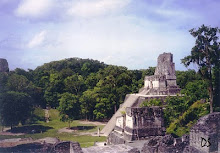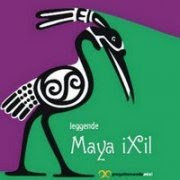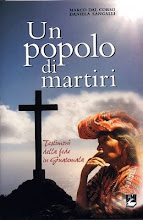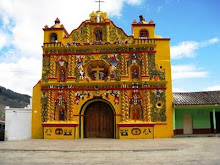lunedì 20 settembre 2010
261 - WRENCHING TESTIMONY AND A HISTORIC SENTENCE
History was made yesterday when a U.S. District Court Judge in Southern Florida, William J. Zloch, sentenced former Guatemalan special forces soldier Gilberto Jordán to ten years in federal prison. Jordán was convicted of lying on his citizenship application to hide his role in the 1982 massacre of hundreds of unarmed civilians in Dos Erres, Guatemala. In condemning Jordán to the maximum time allowed by law for naturalization fraud, Judge Zloch made clear that he intended the ruling to send a clear message that “those who commit egregious human rights violations abroad” cannot find “safe haven from prosecution” in the United States. The sentence marks the first time that any of the dozens of Kaibil special forces who carried out the murders almost 28 years ago has been prosecuted.
The Dos Erres massacre took place as the most intense phase of the Guatemalan government’s scorched earth policies was winding down in December 1982. According to witness testimony, and corroborated through U.S. declassified archives, the Kaibiles entered the town of Dos Erres on the morning of December 6, 1982, and separated the men from women and children. They started torturing the men and raping the women and by the afternoon they had killed almost the entire community, including the children. More than 250 people are believed to have died, their bodies thrown into a dry well or left in nearby fields.
Jordán, who was arrested by U.S. Immigration and Customs Enforcement agents at his home in Delray, Florida, on May 5, confessed to throwing a baby down the well at the start of the massacre and bringing dozens of other men, women and children to the well to be killed. His crime in the United States, however, was lying on the form he filled out in 1996 when he applied to become a United States citizen. On the form, he did not reveal his 12-year service in the Guatemalan Army, and he failed to check the box asking “Have you ever committed a crime or offense for which you were not arrested?”
Normally, sentencing guidelines recommend 0-6 months followed by deportation for naturalization fraud. The U.S. criminal code allows for a sentence outside the suggested range, however, if “there exists an aggravated or mitigating circumstance of any kind… not taken into consideration by the Sentencing Commission…” In his Fort Lauderdale courtroom yesterday, Judge Zloch called the crimes committed by Jordán by participating in the massacre “unprecedented,” noting that there was no example in previous cases of a defendant having lied about “participating in mass murder.”
The sentencing hearing began on September 15, when Jordán was led by a U.S. marshal into the courtroom wearing a beige prison uniform, his ankles shackled and hands cuffed before him. He hobbled to the defense table and was given headphones so that he could listen to the proceedings in Spanish through an interpreter. Behind him sat his wife and other members of his family, including a son in a U.S. Marines uniform.
Also present was Ramiro Osorio Cristales, now 33 years old, who was five when his family was killed during the massacre. Ramiro – who took the stand for the government as one of the only two known surviving witnesses of the Dos Erres massacre – described watching as his mother, younger brother and baby sister were murdered by the Kaibil soldiers. He saw the bodies of his father and four more brothers in the ruins of the village as he was led away once the killing was over. Ramiro survived because one of the Kaibles responsible for the slaughter of his family decided to adopt him.
In asking for an increased sentence, government attorney Hillary Davidson argued that the “atrocities” committed by Jordán and his fellow Kaibiles were “inextricably intertwined with the lie Jordán told” to gain citizenship. Though Jordán’s defense lawyer Robin Rosen-Evans pointed out that Jordán had lived peacefully in the United States for more than twenty years and urged the judge to consider only the “act of concealment” in his sentencing decision, Davidson countered that the hearing was not about “a paradigmatic naturalization fraud case where the crime is shoplifting,” but concerned acts of mass murder that “wiped an entire village off the face of this earth.”
The judge agreed, and appeared incredulous at some of the arguments made by the defense. When Rosen-Evans asked the court to recognize that Jordán had been acting during the massacre under orders from his superiors, Judge Zloch shot back: “Well, if that’s the case then individuals on trial at Nuremberg would not have been convicted.”
The US District Court In Ft. Lauderdale, by Kate Doyle.
The hearing ended following the lawyers’ final arguments and resumed the next day with Judge Zloch’s decision. Calling the crime “reprehensible,” the judge stated that he was “unaware of a more serious basis of immigration fraud than the mass murder of innocent civilians.” He pointed out that by achieving citizenship Jordán hid his brutal past from the United States government and from “his neighbors,” and avoided justice in Guatemala. In calling for the maximum of ten years, Zloch said, “Anything less would be totally inadequate as just punishment for this crime.”
The ruling was the result of an innovative collaboration between the Department of Justice and U.S. Immigration and Customs Enforcement (ICE) at the working level. Lawyers, analysts and agents worked together for more than a year to identify Jordán and three other former Kaibiles allegedly involved in the massacre, now living in the United States. Jordán is the first of the four cases to go to trial.
Despite Judge Zloch’s suggestion that Jordán has evaded Guatemalan justice by living in the United States, there has been no conviction in Guatemala for the terrible massacre. Although the government opened a criminal investigation in 1994 with the first exhumation of bodies from the well, the case has been pending for 16 years and only recently appeared to take on new life. On September 8, a judge in Guatemala ruled that three of 17 former Kaibiles accused of taking part in the massacre can now be tried. The trial is expected to start within days. Among the evidence the prosecution will seek to introduce are declassified U.S.documents provided by the National Security Archive. The documents reveal shortly after the Kaibil operation, U.S.
17/09/2010














